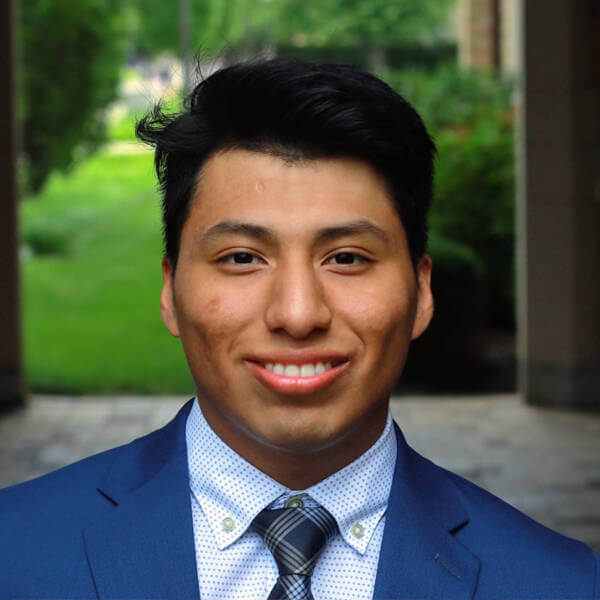First generation tensions
I like being Hispanic. It makes me pretty proud. Especially I feel like at Notre Dame, I feel like whenever I see someone else who I know is Hispanic, I feel like it's already a connection, even though it's a small one. It's probably a lot easier to talk to, I guess and get along too. We have some similar backgrounds and share some experiences. But yeah, like even back home, I like being in that area I guess, like in my area back home, because it's just full of Hispanics and people of color. And I feel like I'm more at home there, I guess. But, yeah, it’s pretty good.
I feel like there's always more hate going around. And I feel like that's happening in the world in general. But there's always, you know, activism going on and people just trying to get along. And I'm like that, I'm like, you know, I’m a lover. I like people getting along. And so it's kind of heartbreaking seeing so much hate in the world, especially in our country. On campus, I feel like I always hear, every year, they accept a new class or like, oh, it's the most diverse class, so I appreciate it in that sense. But then I always hear - I talked to a few of the freshmen like I didn't really see it being 50-50 and it was supposed to be 49%. But, yeah, it's like when you think 49% you think maybe 49% of your own race is gonna be there, but it's not. So, you know, when it's still mostly dominated I feel by white people. But I mean, we're in South Bend, Indiana like there's not – it makes sense.
I remember when I first came here, I was in my dorm, and I was introducing myself to people and I told them I was half Mexican, half Guatemalan. And it kept bugging me for a few months, they would always ask me, “Oh, so you know, are your parents legal or illegal?” And I guess they're asking if I was too, but that always bothered me. And I didn't know what to say to them. I didn’t know if I should lie, or to tell them the truth because I don't want them to judge me so quick. But for a bit I did lie, I will just tell them like, you know, yeah, they are. But after a bit, you know, I got more comfortable and more proud of my parents, tell them the truth and you know, that was big.
Also a few days ago in the career fair, when I was like trying to present my program, because it was like the reverse career fair; they come to you and you talk about the program to try and get them to hire people from your program. And I was explaining to them that my program was for first generation, low income, like that, and he stopped me, he was like, wait, you know, those trigger words. He was like, “Low income and first generation… I'm sorry, but you know, I gotta tell you, we're looking for, we don't want immigrants, we're looking for, you know, US citizens”. And I looked at him and I was like, “You know, low income and first generation doesn't mean immigrants.” And I was just like, “Yeah, we have US citizens,” like okay, and he tried to pause like that. I know that was a touchy subject but I could tell he would prefer if it wasn't, I guess, an immigrant or a person of color.

Fredy Tajboy
Fredy Tajboy is a senior at Notre Dame studying Mechanical Engineering and Anthropology.